As our world progresses around us, new and exciting things come about. For literally centuries now, technology has progressed around us at such a level that some of the newest stuff becomes useless within a few years alone. Of course, other long-standing things go as well, but this happens slower. Still, though, many things prove to be obsolete tech products after a while. It is likely you can think of things that existed during your lifetime that we no longer see today, or see very little of.
This would not even take you very long to think about. Other stuff, however, takes longer to think about. Meanwhile, there is some tech out there that most of us were not old enough to even recall. Even many of our parents and grandparents do not remember some. As a result, we decided to go back in time and bring up some stuff that was incredibly sophisticated and useful for its time. Yet, it one day simply became useless.

Hourglass
- Period of Use: 14th Century BCE to Late-1600s AD
- Made Obsolete By: Clocks and Watches
While you can still find hourglasses out there to purchase, most of the time it is only in use for the sake of novelty. Today, we simply have no need for them and it’s likely even our great-grandparents didn’t either. An hourglass was used for keeping track of time. There were various models made, some big and some small. The hourglass stood the test of time and was around for an incredibly long period in normal use.

They go all the way back to 14th Century BCE and are frequently utilized on board ships. Yet they’d become one of the world’s obsolete tech products when the clock came around. The first was invented in 1656 AD, with several popping up worldwide after. You could say safely by the late 1600s, an hourglass was truly useless. Clocks went from massive to smaller, but once the more portable watch came along by 1700 AD, the hourglass’s use was officially dead.
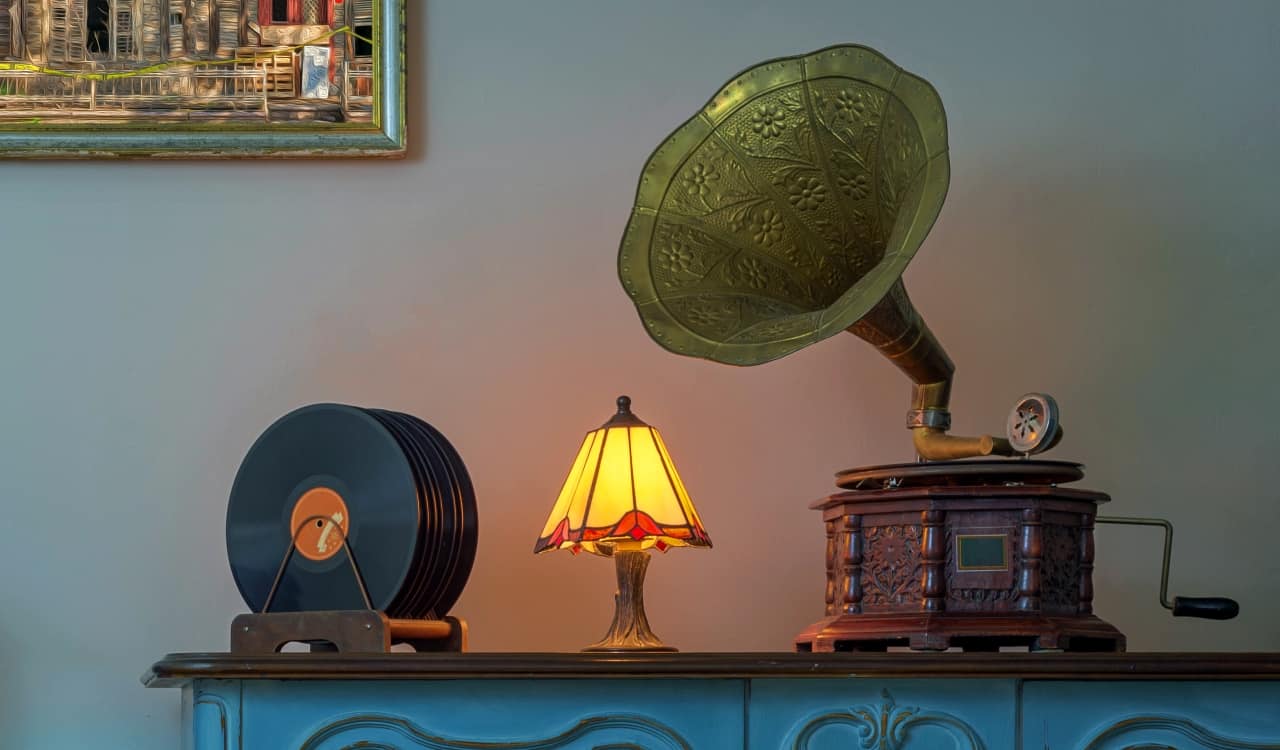
Phonograph
- Period of Use: 1887 to 1990
- Made Obsolete By: New Sound Recording Equipment, Cassettes, CDs
Ah yes, the infamous Phonograph. It is possible we might not even discuss it in history classes today if not for its inventor, Thomas Edison. We’ll get to more on him later. That said, what even was the phonograph, right? Many people know the name but have no idea what it actually did. It was technically used for recording and even playing back sound. This had come along at the perfect time, as radio was going to be hitting it huge with music.

There were some against it, as they thought recording audio with ease like this could be a problem. Of course, it’s not as if one would not know they are being recorded. The phonograph died off in use when better sound recording equipment came along, especially from sound studios as “talkies” took off for the movie industry. It would eventually be of use in music for disc phonograph records, yet this too would end. Mostly due to things like cassettes, compact discs, and much more.
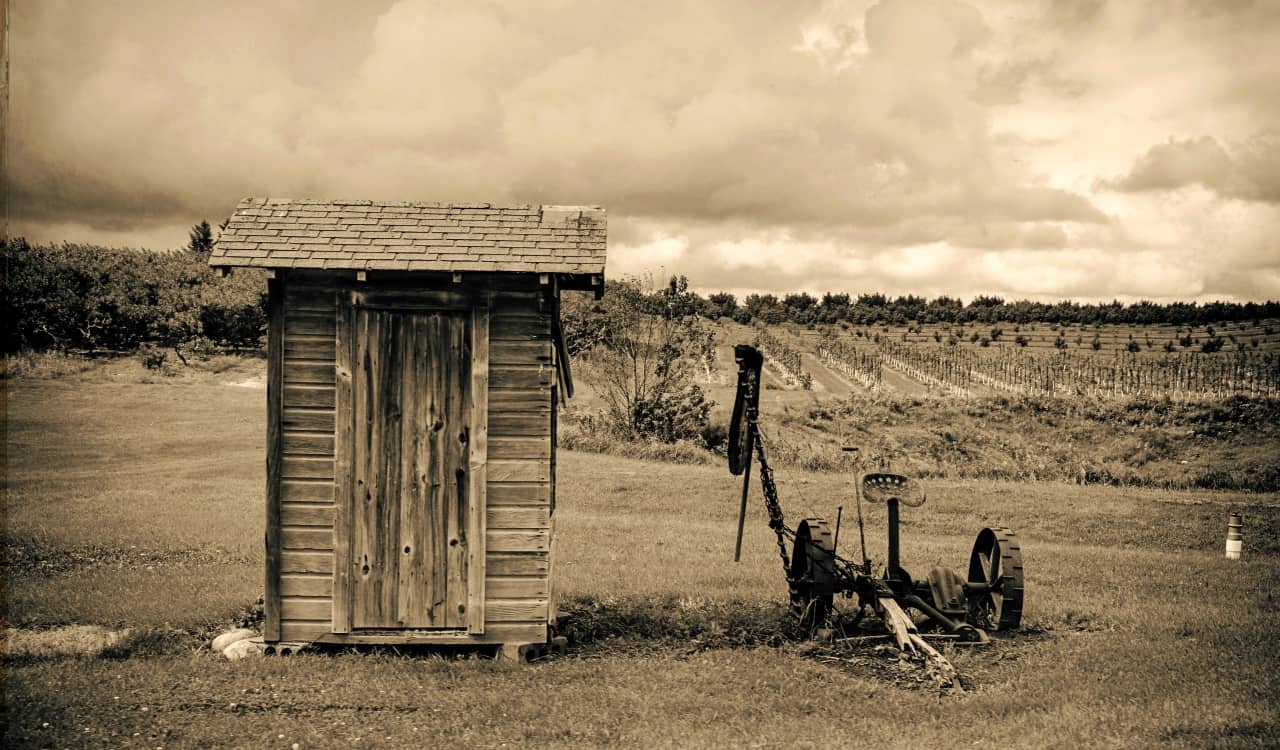
Outhouses
- Period of Use: 4500 BCE to Present (some still rarely do use them)
- Made Obsolete By: In-Door Plumbing
While some may not consider the Outhouse a form of technology, it actually was. While an outhouse was a place where people used to go to, well, take care of some “personal waste disposal,” there was some tech in this. Outhouses were relatively useful and could allow a person a room to use the restroom, where they could empty out all waste into a specific area. Some of which would go off into the environment or even early sewer systems.

Plumbing tech like this was great, as humans used to just go in a bucket but it had to eventually be thrown out. Which was often not handled well. Outhouses could prevent this problem, and the several advancements to them were terrific as time went on. However, in the words of one of the Fates from Disney’s Hercules: “in-door plumbing, it’s gonna be big.” She was right, which is why outhouses became one of the world’s obsolete tech products.
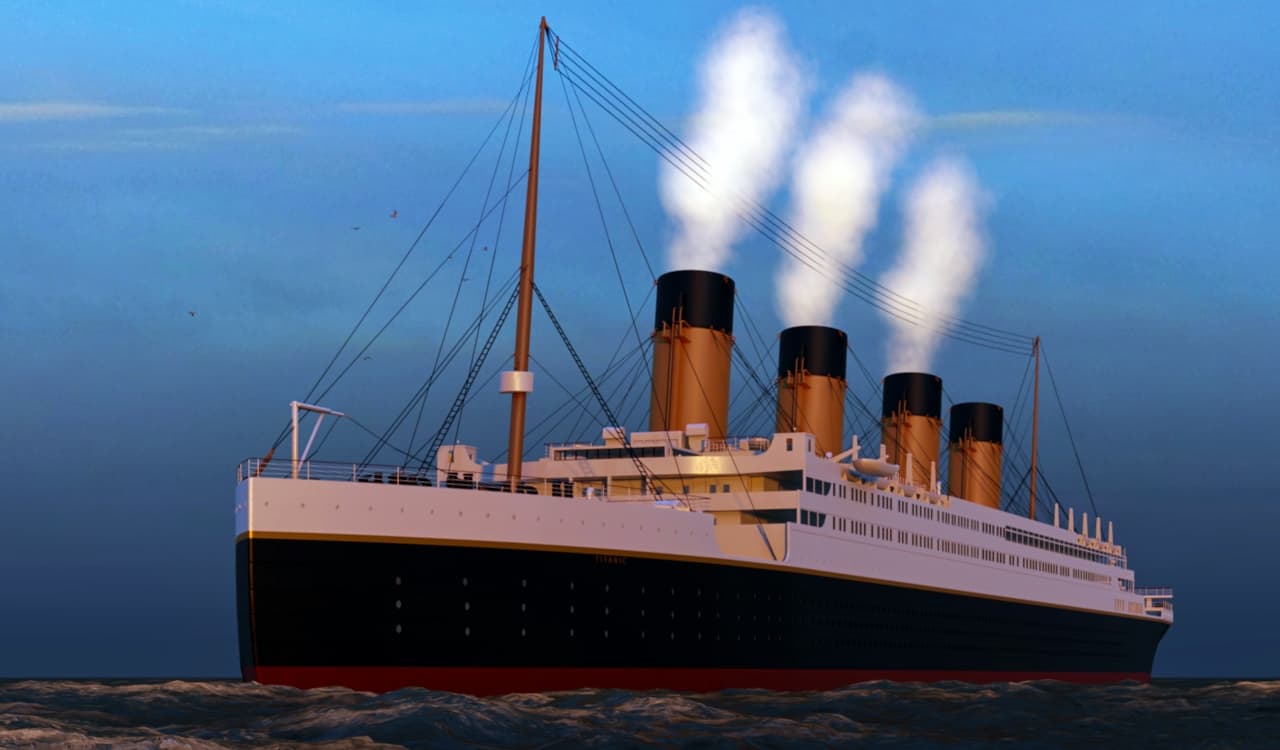
Luxury Ocean Liners
- Period of Use: Mid-1800s to 1950s
- Made Obsolete By: The Airplane
When people see “luxury ocean liners,” they might assume it was just like a cruise ship today. But this could not be further from the truth. Likely the best example of a luxury ocean liner is the infamous Titanic. While many did not go through a similar accident that took down the Titanic, they were all very similar. Where they’d be filled with the uber-rich who would travel across the ocean in style.

It would have some of the finest food from the finest chefs. Rooms were immaculate, staff would do whatever you needed at your smallest whim, etc. After the Titanic went down, many did not know if it was the best way to travel. We’d still see them until the Airplane came along. It cut down the wait to get to your destination by weeks, making it THE way to travel for anyone, especially the ultra-wealthy. Today, these liners belong to the pile of obsolete tech products mankind has little use for.
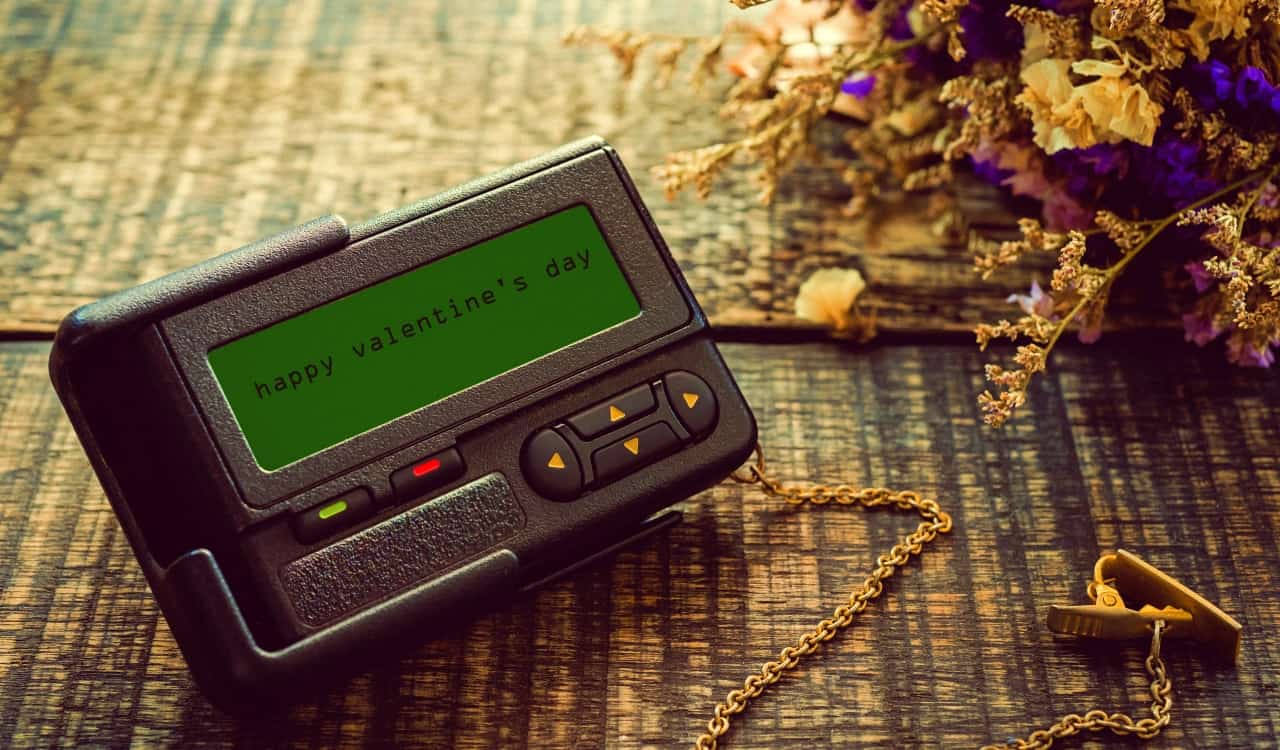
Pagers/Beepers
- Period of Use: 1950s to Present (still some minor use)
- Made Obsolete By: Smartphones
Let’s say for some reason, you still have a pager or beeper in the 2020s. We’d first want to know how old you were because you could not be below 40 years old. However, we’d also ask about your career, as there are some careers that can still have a possible need for them. They were most famous in the 1980s and 1990s, and it is possible if you watch a TV Show or Movie from that era, some of the youth of that time, as well as high-powered bosses, usually had one.

What were they? They were pretty much alert systems, and could technically be called the first texting devices. Some would alert you to do something or tell you of something. Some others were used for that plus had an audio option that could work like a mini-voicemail exchange. Today, some doctors and lawyers still use them. Yet even they have started to phase this out in favor of just the simple cell phone
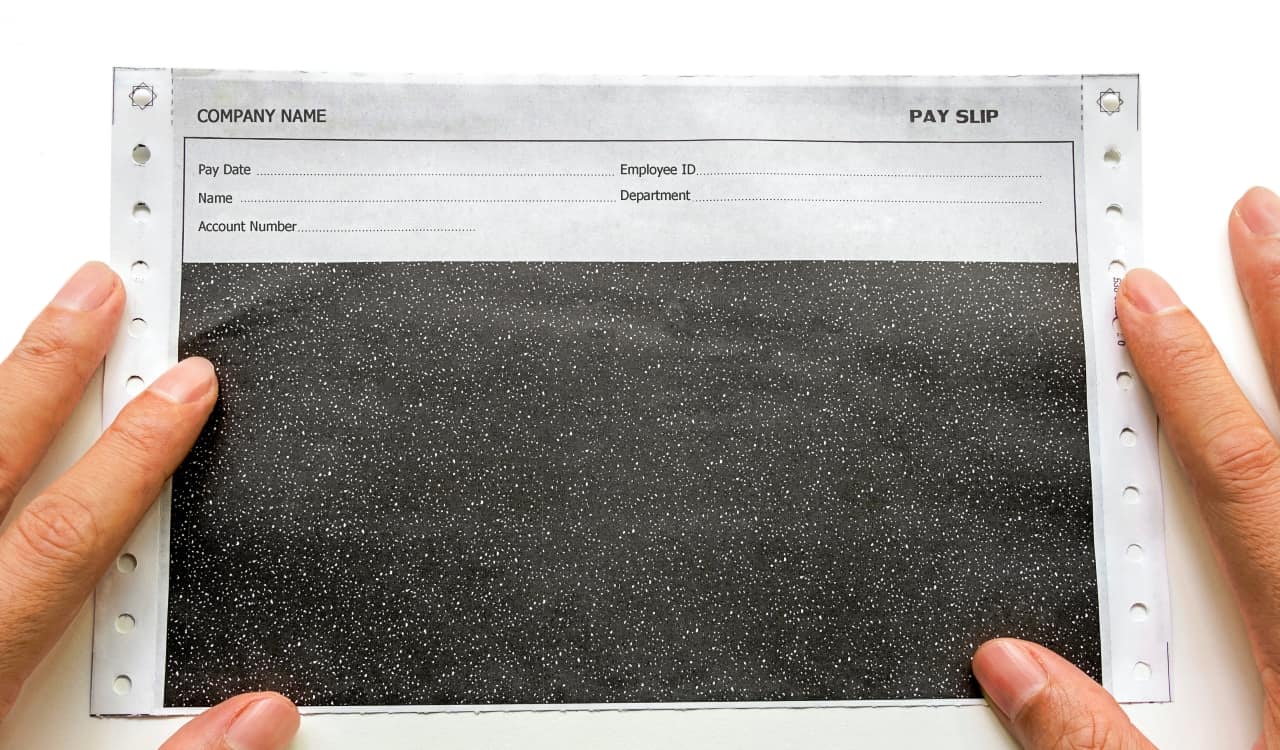
Carbon Paper
- Period of Use: 1806 to 1970s (somewhat still used for business forms, SATs)
- Made Obsolete By: Printers and Copiers
Carbon Paper was really cool stuff. It truly was a form of paper that was coated with loosely bound dry ink on one side and bound with wax. It was used to copy several documents rather than having to do complete rewrites of them. The text could come from any source or language pretty much and this carbon paper could copy it. When the process was patented for solvent carbon paper by the Columbia Ribbon and Carbon Manufacturing Company in 1954, things took off even more.
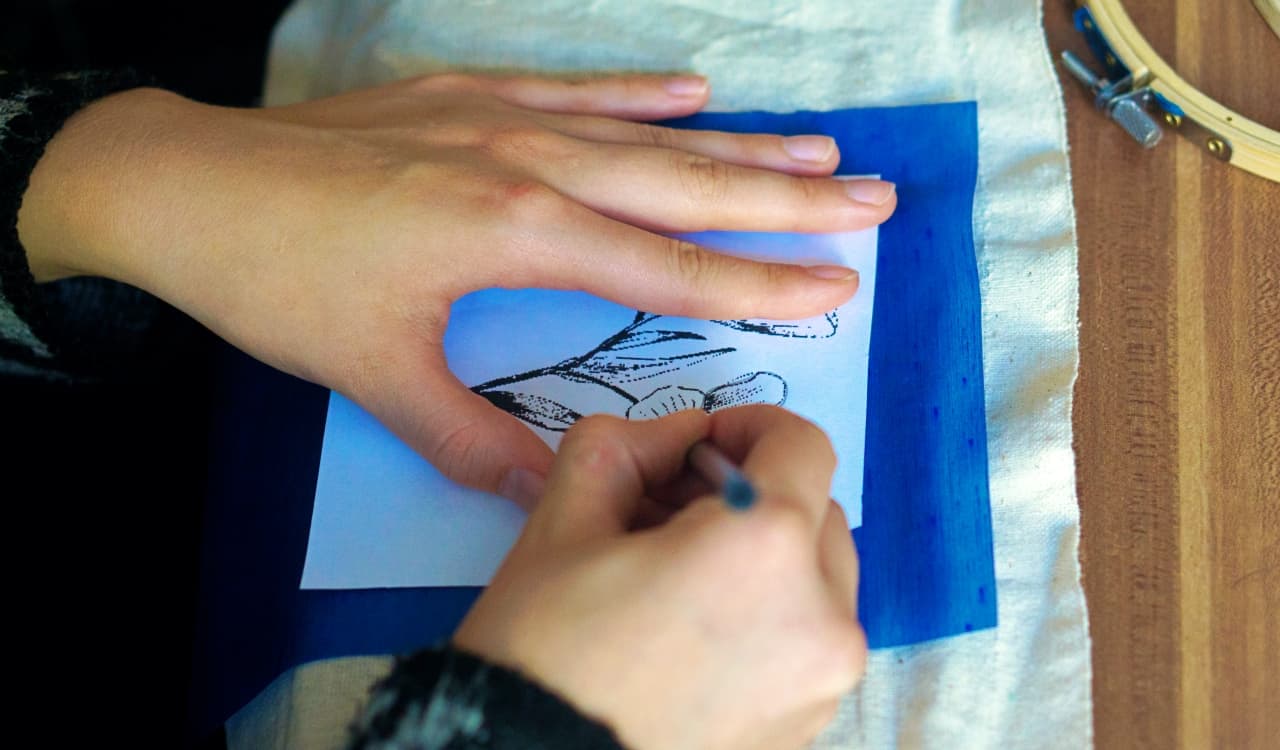
Using this newer and patented method, it was now possible to use polyester or plastic film as an underlying base rather than paper. This, in turn, took paper itself out but the name remained “carbon paper.” Although the Printing Press was around during the time of Carbon Paper, it was mostly used for the media. Once personal printers and copiers became worldwide staples in offices, carbon paper joined its brothers to become one of the world’s obsolete tech products.’
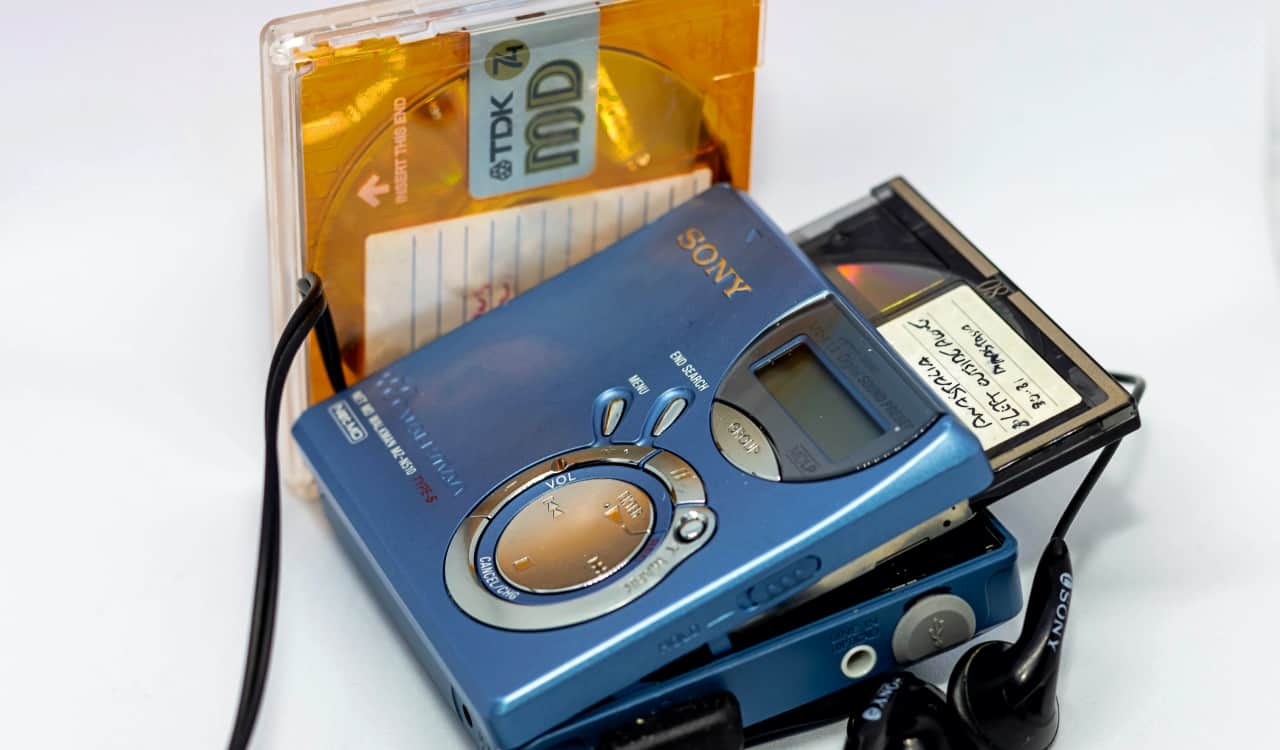
Minidisc Players
- Period of Use: 2010 to 2014
- Made Obsolete By: MP3 Players and Apple’s iPod
It’s possible some people never even heard of minidisc players, and it’s not shocking. They were only around for a cup of coffee, but the idea behind them made sense. Instead of trying to carry around heavy tech devices or lug around a bunch of stuff from your music collection, why not miniaturize it? It made sense, which is likely why these things became huge in Japan and in some parts of Europe. Yet they never really took off as much in the United States.
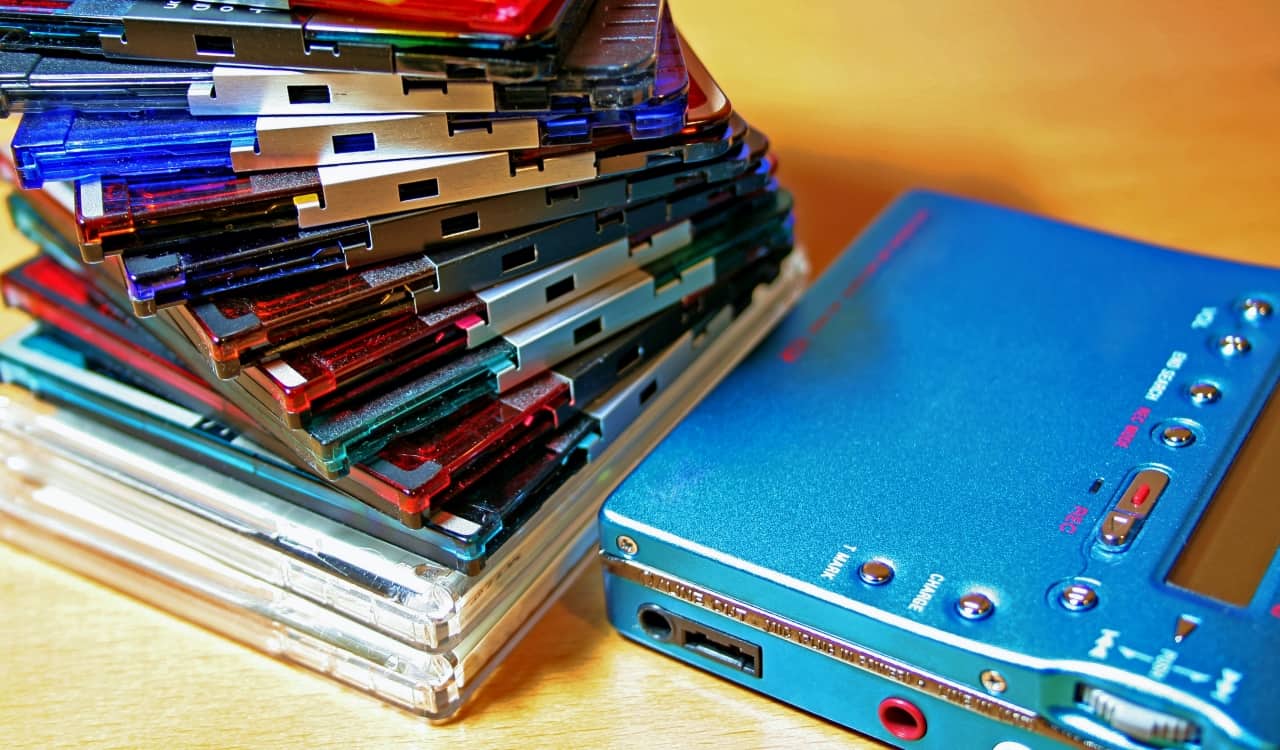
Sony developed them, which explains the Japanese connection. They even saw some good profit, with over 22 million being sold up to March of 2011. By 2013, Sony stopped making them due to the drastic drop. They played small music cartridges usually with only 1 song on them. Naturally, people were not going to be invested for long, especially with the much more impressive MP3 Players and Apple’s iPod. Thus putting Minidisc players on the obsolete tech products list.

Bathing Machines
- Period of Use: 18th Century to Early 20th Century
- Made Obsolete By: Changing Political Climate
Most people will have no idea what you’re talking about if you bring up “bathing machines.” Heck, some might assume you mean a shower or tub of water, which is sort of understandable. Yet these were not used for such a thing, rather, for something entirely different. It was essentially a changing area that would allow a person to change out of normal clothing, and into their swimwear. These machines were completely covered with a roof, usually in wooden carts, and were then rolled out to sea.

It was supposedly used for proper etiquette at the time for sea-bathers and was pretty much an exclusive thing for women to use over men. In fact, women and men were often separated completely at some beaches, especially in Great Britain. This all changed when people felt it was stupid that people could not be seen in swimwear. Especially women. During the early 20th Century, the fight for equal rights among women was starting to pick up steam and things like this ended as a result.

Cathode Ray Tubes (CRTs)
- Period of Use: 1922 to early 2000s
- Made Obsolete By: LCD, OLED, Plasma Display, Laptops
Cathode Ray Tubes were early televisions/monitors that used one or more electron guns, which manipulated beans to display images on a phosphorescent screen. CRTs would also be used for some memory devices, which did not require a screen but could be used to remember important data. For screens, the entire front portion of the tube is scanned repeatedly through systematic patterns referred to as rasters.
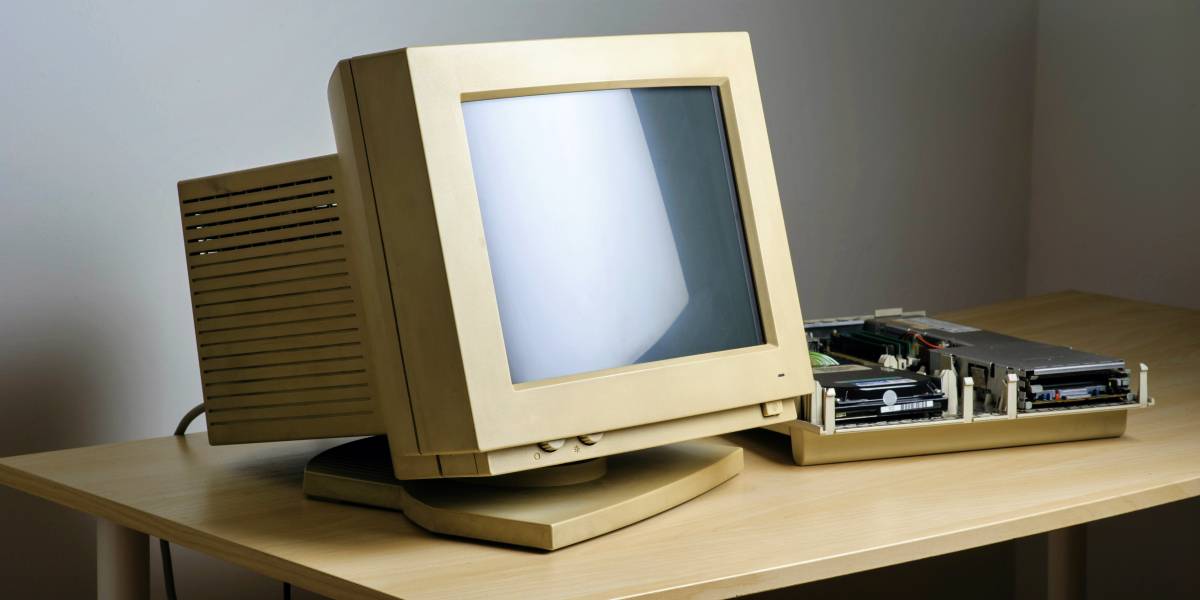
For color CRTs, the intensity of the beams was controlled by three electron beams, one for each primary color (Red, Green, Blue). The modern versions use magnetic deflection to bend beams. While CRTs would be a staple for televisions for a while, they’d eventually die off. They would then mostly be used for monitors people would use for personal computers. That too changed mostly thanks to better monitors, laptops, etc. Thus, adding CRTs to the world’s obsolete tech products.
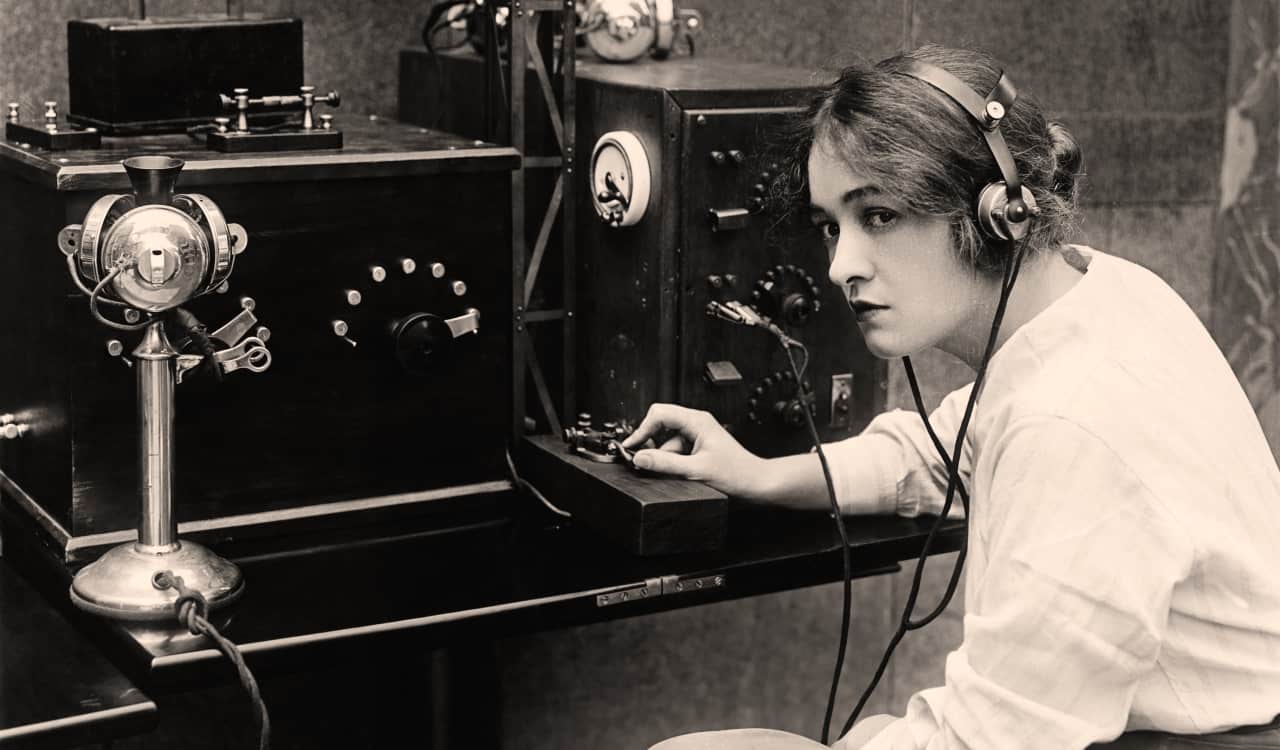
Single-Wire Telegraph System
- Period of Use: Mid-1800s to Early 1900s
- Made Obsolete By: Telephone
The Telegraph was a major invention for its time. Samuel Morse truly invented a system that would become a major technological product hundreds of thousands would use. The telegraph was modeled after the ancient signaling concept where guards would light beacons to signal to others that something had happened. Others would see this, also lighting their beacons, eventually making everyone aware something had happened.

Morse is also credited for inventing the language we used for the telegraph, Morse Code. These were coded to fit specific words, phrases, or letters. It would essentially be the first texting device mankind utilized. It would be a massive asset to the world during wartime, specifically, the American Civil War was notable for using Telegraphs quite often. Of course, the Telegraph would join the realm of obsolete tech products eventually as this little thing called the Telephone came about.

Overhead Projectors
- Period of Use: Late 1800s to 2010s
- Made Obsolete By: Computers, Better Projection Systems
It is likely many of us are old enough to remember overhead projectors being used in our classrooms at school. They used to be used for several things too. We’d use them to display information, such as mathematical material, where the instructor felt you’d benefit from the larger screen. They’d also be used for some other stuff similar to this. Moreover, they’d be used to show videos in class at times too. This might be done by a slide projector if the overhead didn’t have one connected.
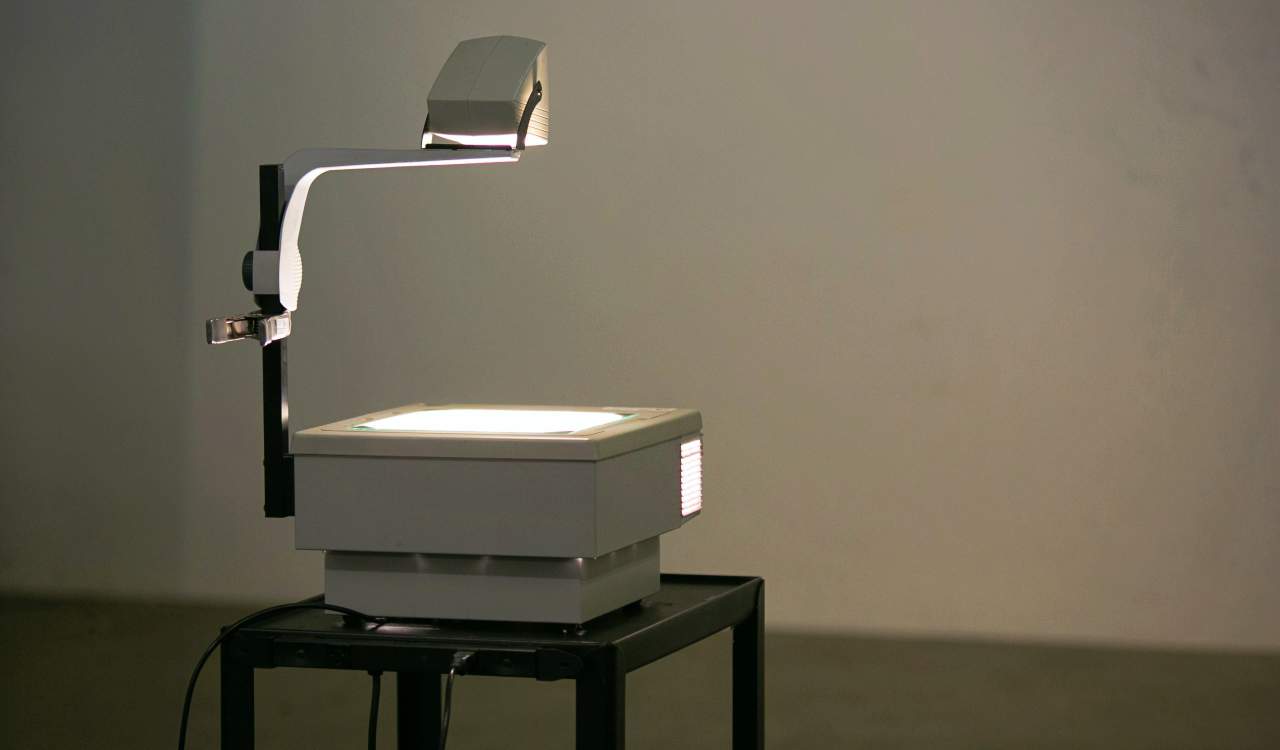
These projectors could be used for a lot, but they truly have become obsolete. The reason for this is mostly due to how projectors are made today. They can do far more, especially in terms of entertainment. They are also a lot smaller, and teachers tend to use whiteboards to write stuff out. Some even display something using their computer instead. Now, the overhead projector is within the realm of obsolete tech products, simply due to them no longer having true use anymore.

Quill Pen
- Period of Use: Around 6th Century AD to Early 1800s AD
- Made Obsolete By: Ink Pens
It was found a long time ago that feathers from large birds could be converted into quills that could write on paper, as long as you had the ink to dip them in. This was one of the first ways we began to write on paper or parchment. We also saw it used in some form on papyrus, but to a lesser extent toward the end of its normal use. These quill pens would be incredibly useful and worked out well.

A properly prepared quill could be an excellent writing utensil, and the calligraphy still created with them can be impressive art these days. However, as time went on, quills became a little bit useless. Especially if you had one without any ink. Plus ink could easily fall off the table, tump over, you name it. That led to the invention of the first ink pen came about in the 1800s, removing the need for a quill pen with separate ink. Things evolved from there and by the 1900s, no one was using a quill.
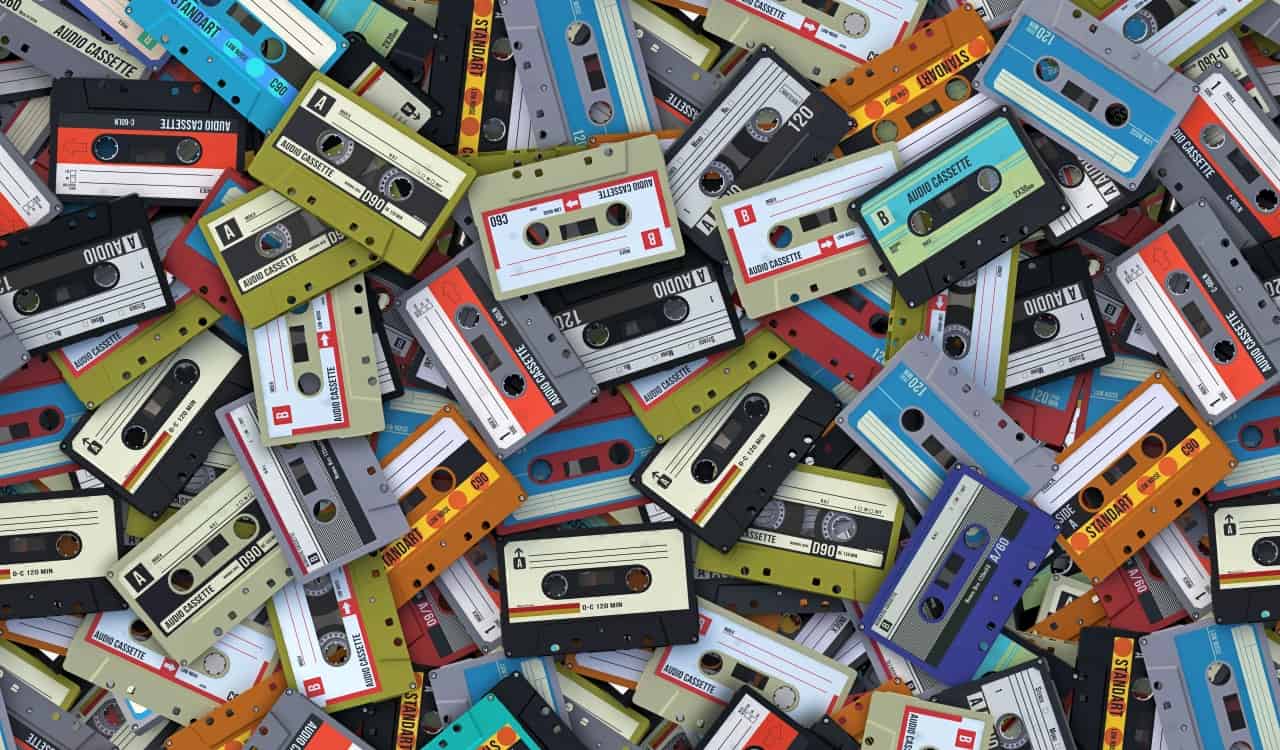
Audio Cassette and Cassette Player
- Period of Use: 1960s to Mid-2000s
- Made Obsolete By: Compact Discs and CD Players
Audio Cassettes were really useful when they first came out in the 1960s. No longer did one have to carry around large records, as you could use small tapes instead. While A-Track and Vinyl records were possible to play in some cars, the standard vehicle could easily fit in cassette players. They were cheaper to add in, and no major special designs were really needed. Now people could listen to music more, on cassettes, which they could have more of in smaller spaces.
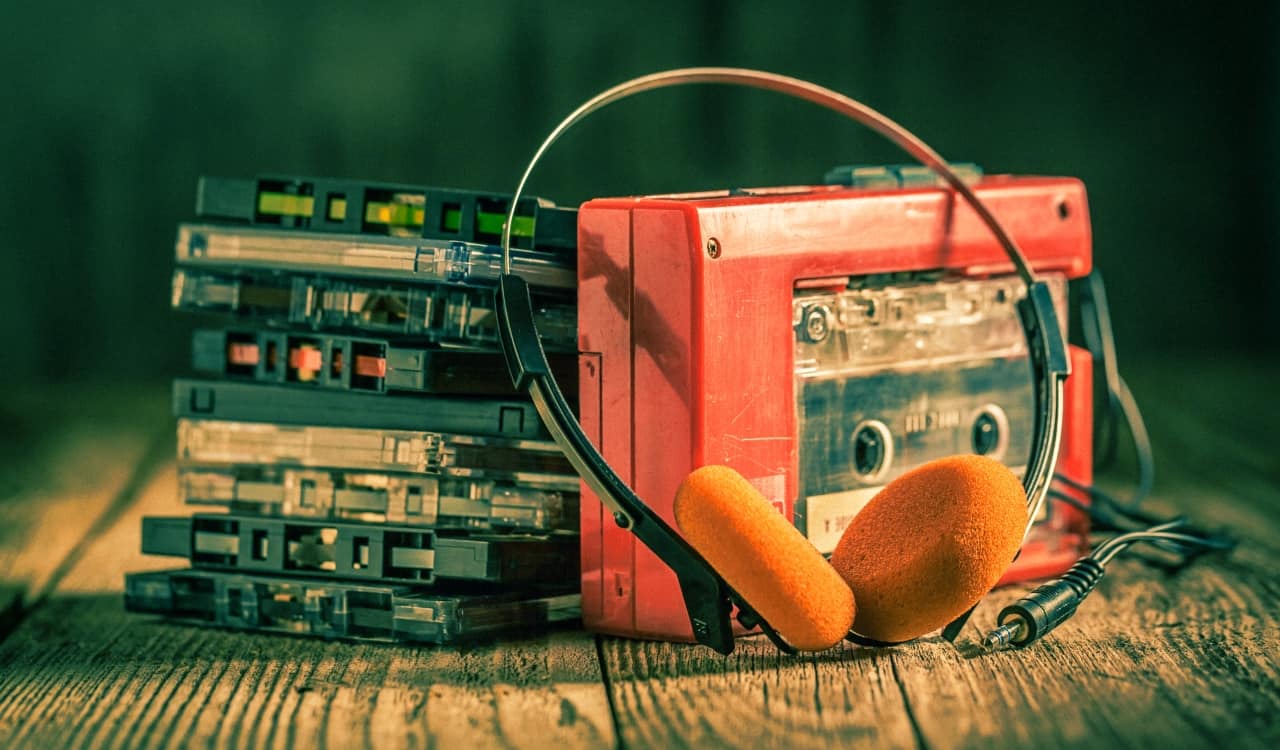
Cassettes could also be used in recording devices, allowing you to record things on the radio and listen back to them. They could also be used in smaller recording devices or portable music players. They were revolutionary for their time and were at their height around the 1980s and 1990s. However, this little thing called the Compact Disc started to become useful in the early 2000s. Just as small and portable, it overtook tapes while cars added CD players to further alienate the cassette.

Steam Engine
- Period of Use: 1700s to late 1800s
- Made Obsolete By: Electric and Internal Combustion Engines
The Steam Engine was a miracle of technology when it first arrived in the 16th Century. We used steam to power things as early as the 1st Century AD. Yet to do this with larger objects like trains or ships, a true engine needed to be made that could handle all the moving parts those things came with. Thomas Newcomen was the original inventor of the steam engine in the early 1700s but James Watt’s critical improvements in the late 1700s led to steam engine use being widespread.

In fact, Watt’s invention is considered to be one of the catalysts to the Industrial Revolution taking off in Europe. Yet the steam engine, while useful, was no match for electric and internal combustion engines. Gas and Diesel were easy to come by for many years and lasted longer than steam. That allowed traveling longer distances and was MUCH cheaper to use. It would also become essential to the first automobiles too. Thus, putting the steam engine in the realm of obsolete tech products.
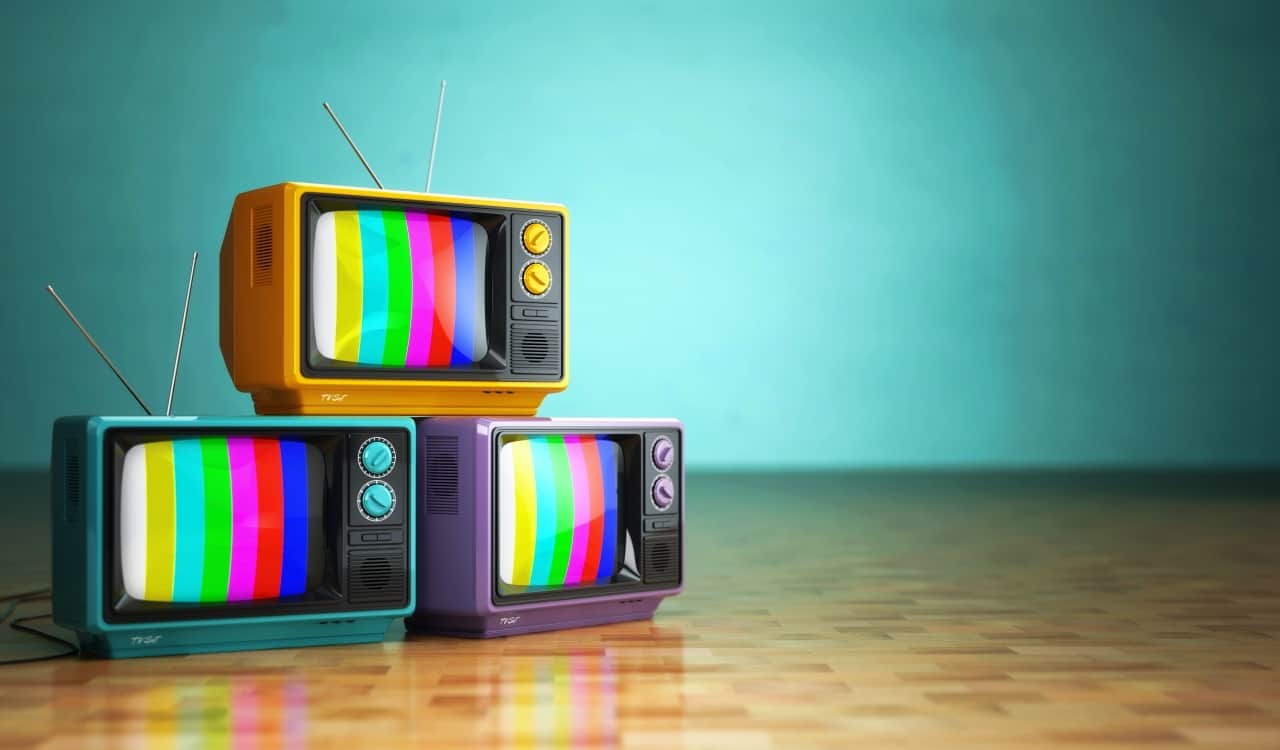
Analog Television
- Period of Use: 1920s to 2009
- Made Obsolete By: Digital Transition, Cable and Satellite, Streaming Services
Analog Television was pretty much how we all watched television ever since it was first invented, as TVs worked off of analog signals to gain access to networks. Once TVs came around, networks began to pop up with what we’d now call “classic programs.” A lot of this was made for the entire family to enjoy, and every country seemed to have its own set of shows that would come on early TVs. Things changed, however, when cable hit the world by storm in the 1980s.

Now there was a paid service where you could get extra channels beyond the few networks available to you. Of course, being a paid service, very few people felt the need to get cable initially. Analog Television was still primary for most. However, this all changed, especially in the United States, when a forced Digital Transition took place. Analog was taken offline and replace with digital signals. This sprouted up new digital networks, but many ended up buying cable or satellite packages.
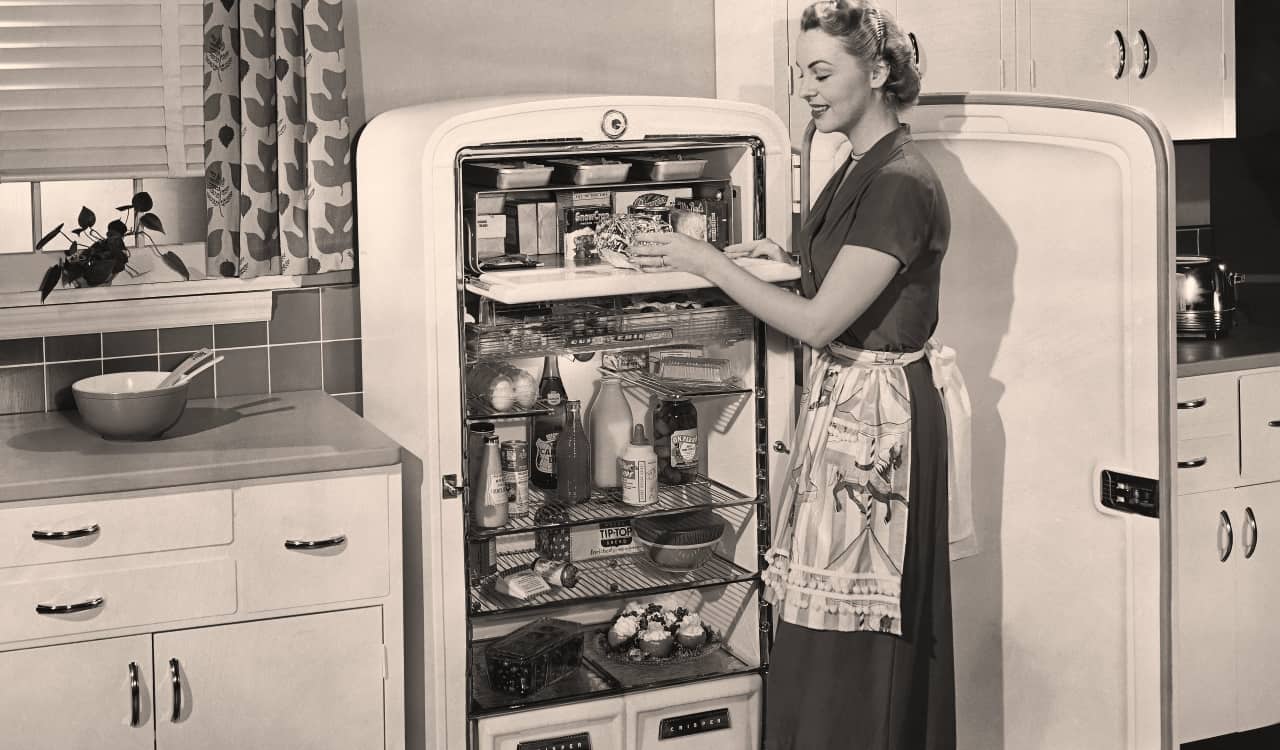
Icebox
- Period of Use: 1802 to Early 1900s
- Made Obsolete By: The Modern Refrigerator
Before the Icebox, a lot of food used to go bad much quicker than it should. Although spices helped to stop this a bit, we knew that cold meat would last longer. The question ultimately was how to keep it cool. That answer was solved with the Icebox. Of course, we knew the concept. We used some form of freezing or cooling dating back to the 1700s BCE. However, the Icebox made more sense than previous methods. Some of which included underground cellars, caves, etc.
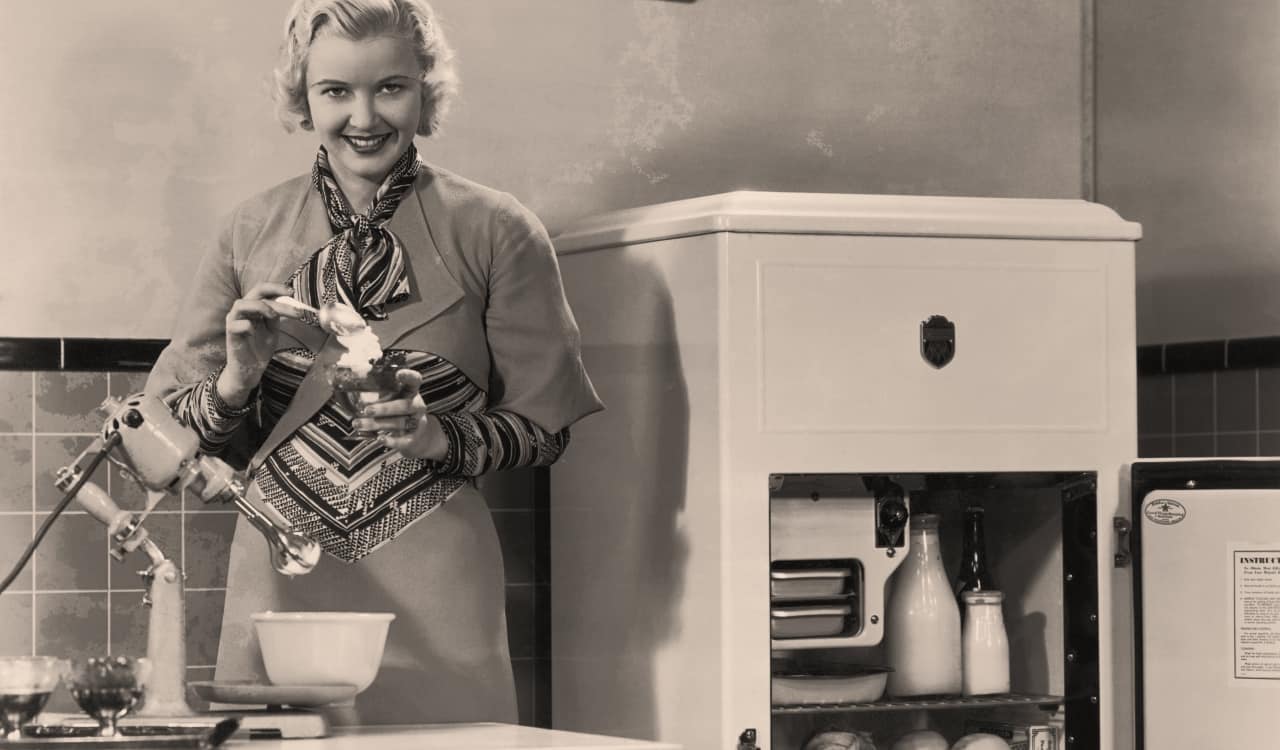
Thomas Moore’s Icebox was invented in 1802 and could be placed in the home. It looked a lot like a cabinet with the best version being wrapped with tin or zinc on the inside, using cork, sawdust, or even seaweed for insulation. A large block of ice would be inside a tray at the top of the Icebox. It would be a huge hit, doing the job of keeping things cool well. Yet it would join the realm of obsolete tech products with the arrival of the modern refrigerator. It was great while it lasted!

The Flip-Phone/ Blackberry
- Period of Use: Early 2000s to 2010s
- Made Obsolete By: Better Smartphones, Apple iPhone
When cell phones first came around, they looked a lot like a brick with an antenna. For the most part, the developers used technology that the Armed Forces had been using for decades and formed the original cell phone with it. As time went on, phones would get much smaller. By the 2000s, the infamous Flip-Phone hit the world by storm. It was easy to use, compact, and several even connected to the internet! Yet this was nothing compared to the Blackberry.
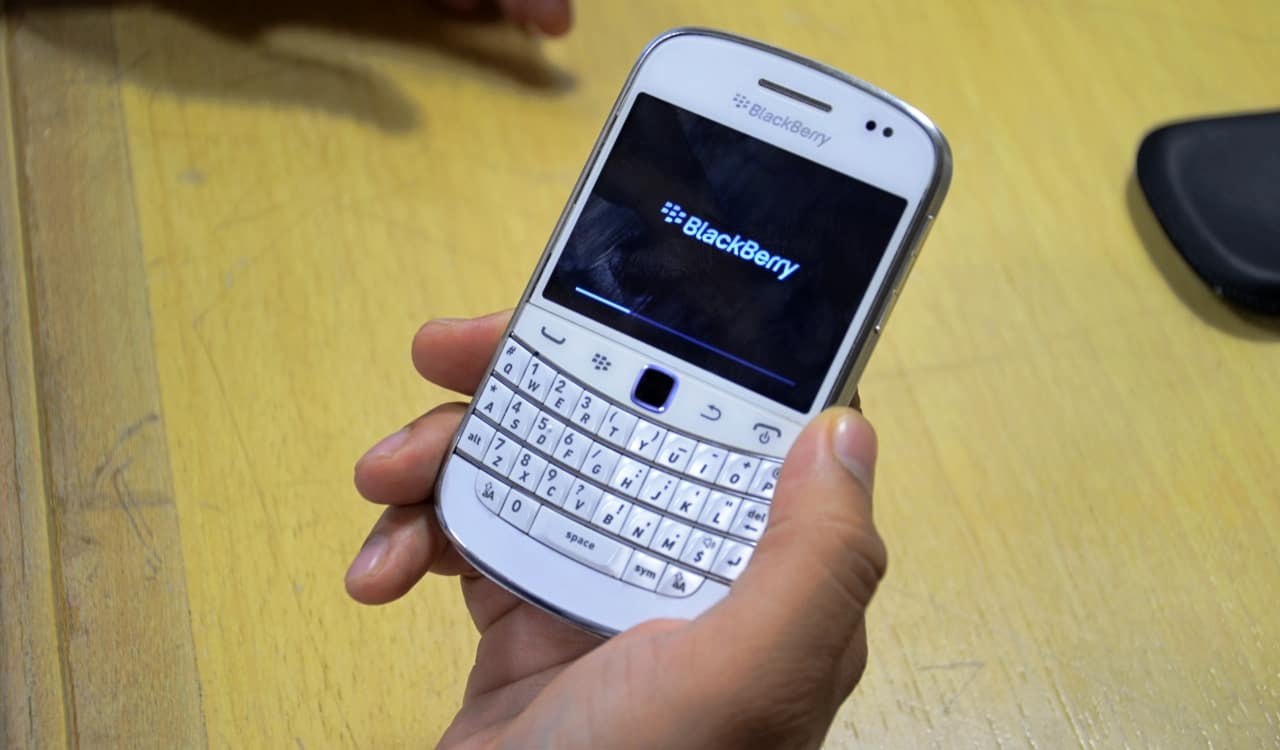
The Blackberry was technically the first smartphone, as it could be useful for numerous needs. Also small and compact, it could handle a lot. Even former President Barack Obama notably had his Blackberry on him often. Both phones would fall out of style drastically when more powerful smartphones hit the market. Once Google got in on things with Android, numerous phones came about. However, very few compared to the powerful Apple iPhone. Considered the most powerful phone ever.
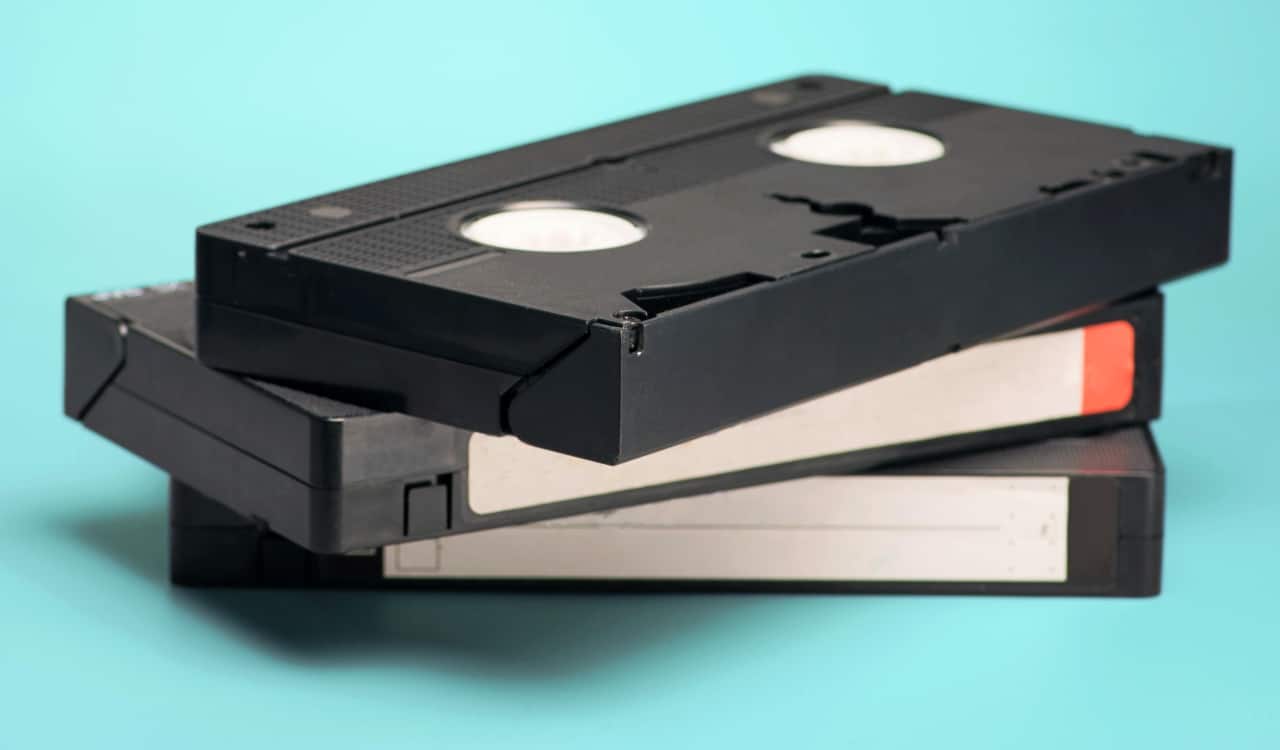
Video Home System (VHS) Cassettes/Video Cassette Player (VCR)
- Period of Use: 1970s To Early 2000s
- Made Obsolete By: DVDs/DVD Players
Video Cassettes were a huge invention. They were truly great to record on, which led to many video cameras using them to record at-home material. Yet these same tapes would also be developed further. The Motion Picture world realized that after a movie hit theaters, they could further get money out of people. While they might go to the theater to see a movie one time, they might also buy that same movie for at-home viewing several months later.

For those who could not see the film when it was in theaters, it would allow the Movie Studios to get money out of those people too! That led to Video Cassette Players being needed, which pretty much everyone had along with many VHS tapes. This would last for several years until discs became a popular medium to put movies on. DVDs began to take off, leading to DVD Players rising in popularity too. Both essentially killed the VHS/VCR world, making them both obsolete tech products.

Early Siege Engines
- Period of Use: 8th Century BCE to 1900s AD
- Made Obsolete By: Modern Guns and The Airplane
When we reference “early siege engines,” we mean the type of weaponry an Armed Forces unit might use to breach the walls of a fortified area. This might include things like the simple ram, used to bash through doors. This also includes the use of projectiles, especially boulders/rocks as well as fire. The most unique might be arrows, both the regular-sized versions and the much larger type shot using Ballistae equipment. Catapults were also notable aides in all of this to send projectiles.

Eventually, we would see the use of other siege instruments on top of this, including more sophisticated models of earlier weaponry. However, while these might have been effective for a lot of things, they all became useless when planes came to pass. Now you could fly over places and drop bombs or use guns to bash through at a closer range. The warplanes effectively made early siege engines obsolete tech products that we truly don’t use much if at all anymore.
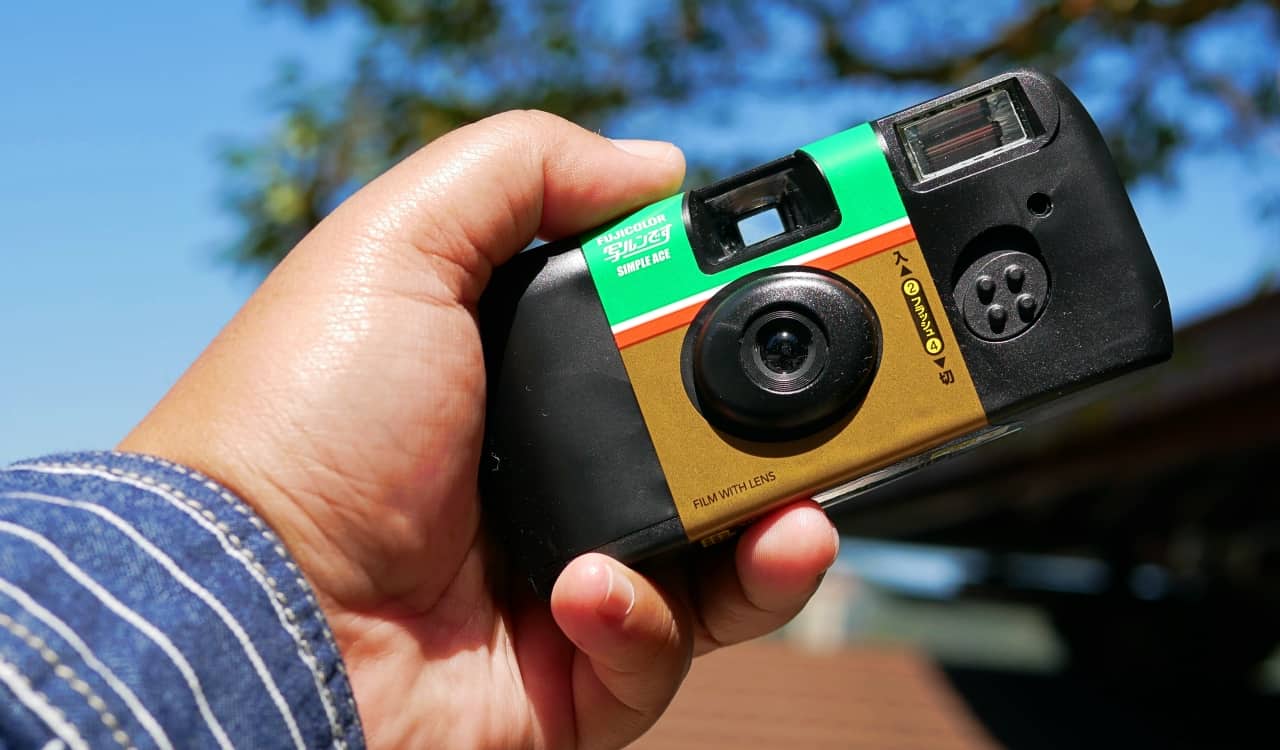
Disposable Cameras
- Period of Use: 1970s to Present (some still use them but not as much since the mid-2010s)
- Made Obsolete By: Improved Cameras on Smartphones, Normal Cameras Becoming Cheaper
Disposable Cameras are likely something even some of our children have seen because they do still exist. However, they are far less useful than they used to be. Initially, they were perfect due to being cheap and good enough to do the job, especially for vacations, weddings, or anything else you wanted to remember in picture form. You’d simply take pics until you ran out of any film to use, then go and get those pictures developed. You could usually do this at the store you bought the camera from.

However, disposable cameras have truly become useless by this point. This is for quite a few reasons. The main one is that even though they have improved, many being digital, disposable cameras are nowhere near as good at taking images as your smartphone. In fact, you’re likely to get better pictures on your phone. People also like to add pics to their social media, which is just a few clicks on your phone but not with a camera. Adding these to the realm of obsolete tech products.

Moonlight Towers
- Period of Use: Mid-1800s to Early 1900s
- Made Obsolete By: Improved Street Lights, Flashlights, and Lights From Buildings
Moonlight Towers were pretty interesting for their time and were quite useful. Some like to call them the “light towers of the street” due to working similar to how lighthouses operated. Instead of warning ships in the water, they would shine light onto the street. This was a good way to see at night, especially in cities without any other source of light to use. Since they mostly operated in cities, residential areas were not usually affected by them.

However, if one were to live in a city that had one, it could be a bit bothersome. Why did we stop using these Moonlight Towers? Simple, they became useless with improved street lights and eventually other light sources from buildings. Of course, street lights initially began by using fire to light a slow-burning candle inside. Today, they operate exclusively on electricity and come on with sensors. All of this is making Moonlight Towers obsolete tech products today.
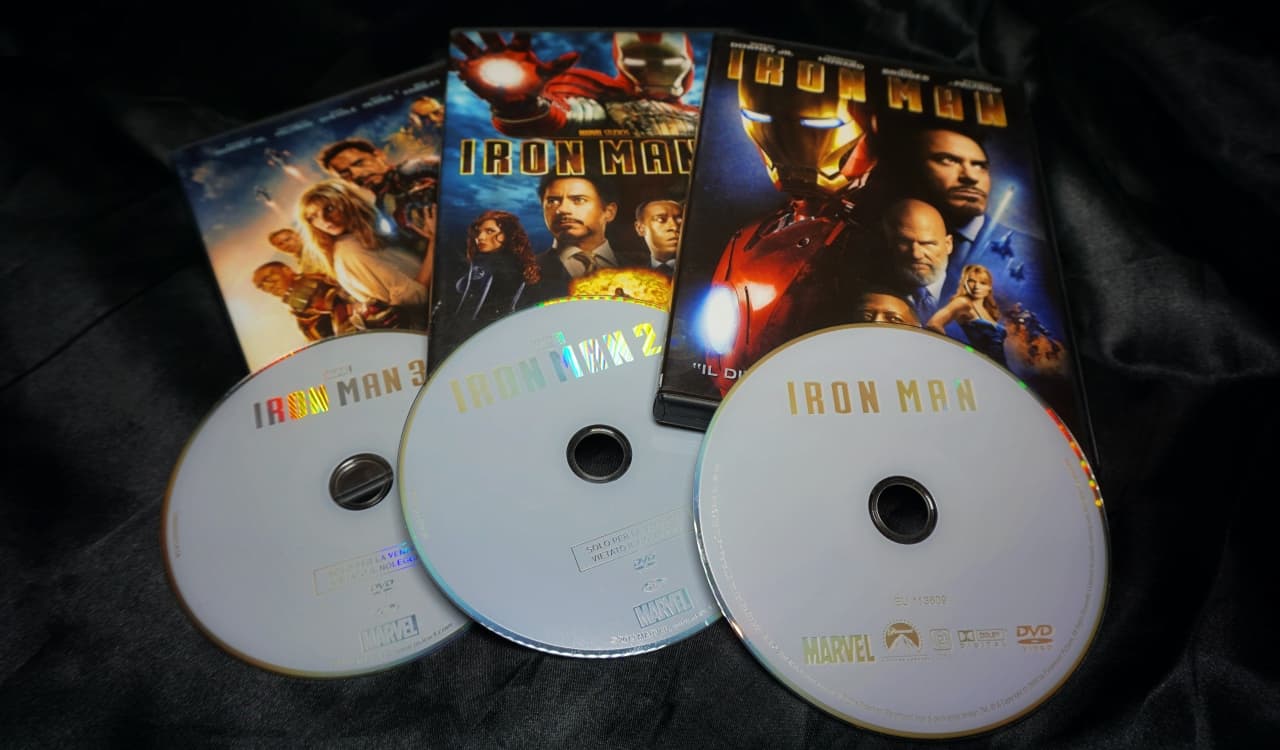
Digital Optic Disc (DVD)
- Period of Use: Early 2000s to Present (DVDs are still in use, just not nearly as much)
- Made Obsolete By: BlueRays, Streaming Services
While DVDs are still in use today, they are not nearly as common as they used to be. In the early 2000s, they came along and replaced the VHS and VCR. They could be enhanced heavily whereas VHS had pretty much reached its limit. Discs could offer a better image, bringing true high-definition video. This was a huge change, making many decide to go toward these discs. On top of all of this, they took up less space than VHS. With all that was going right for them, what happened?
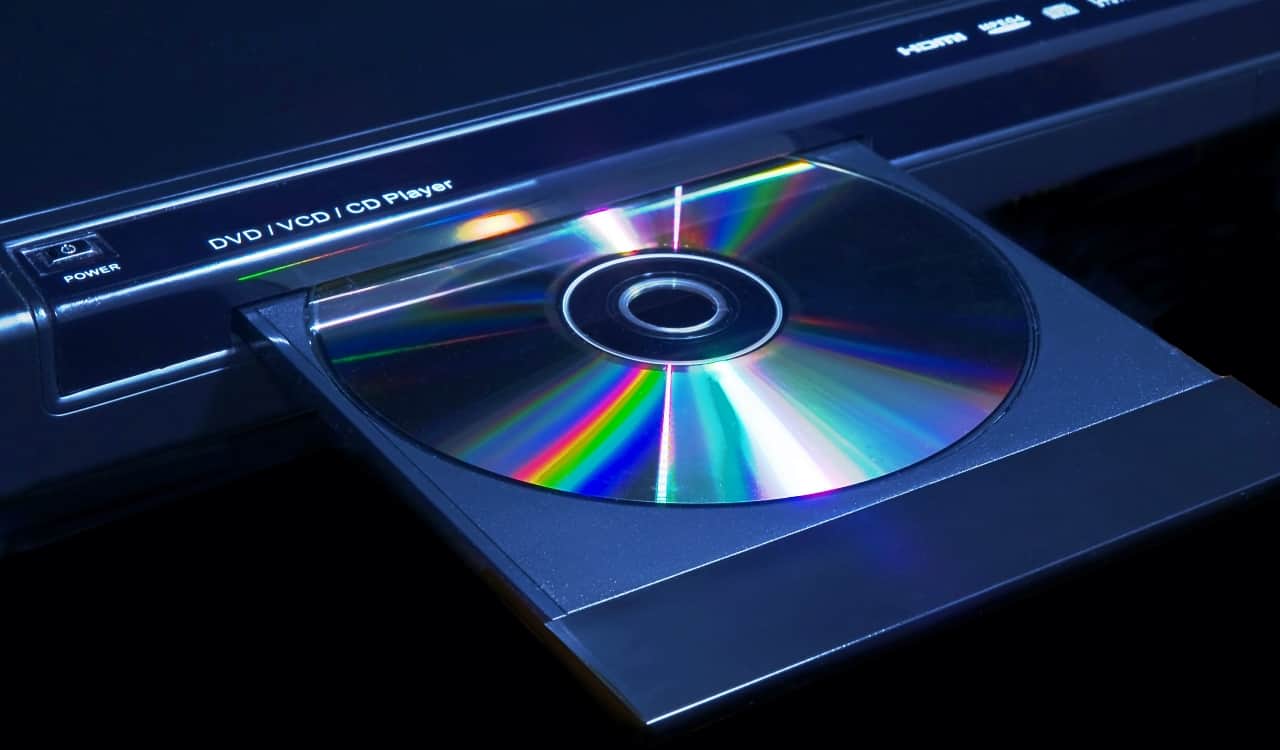
Why are DVDs now a part of the realm of obsolete tech products? Simple, the invention of BlueRay. While BlueRay did not completely replace DVDs, they were able to make the video far better. Just as DVDs did with VHS, BlueRay did to DVDs. They came along and did the job better. Moreover, other newer things replaced DVDs such as streaming services. This could allow you to buy online, putting your purchased film on various services (like Vudu), removing the need for a disc at all.
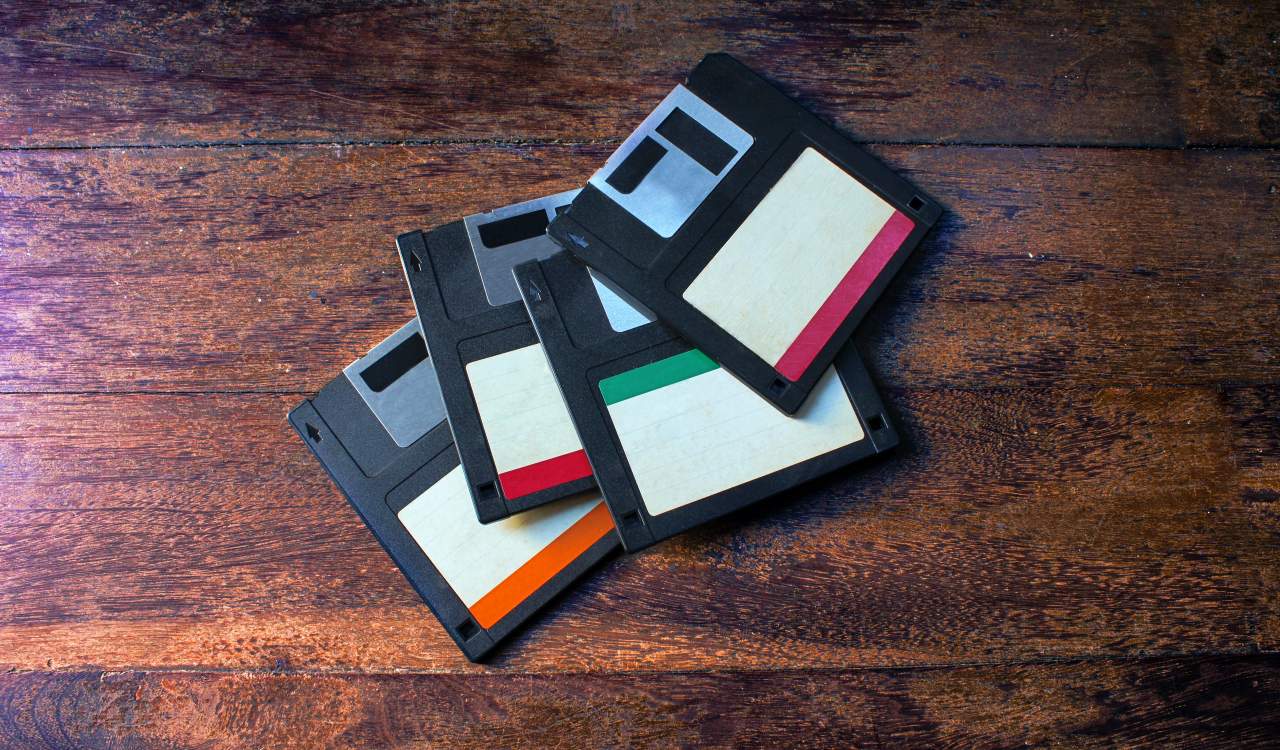
Floppy Disks
- Period of Use: 1960s to Early 2000s
- Made Obsolete By: Compact Discs (CDs)
Floppy Disks were incredibly useful for early computers. While a version of these discs was used in some of the earlier computer models, the one we came to know was used for personal computers. How would you get new software or games on your computer? A floppy disk of course. They were also used as storage for numerous files you might have a need to save as well. They were invented by IBM and were incredibly useful for personal computers for a long time.
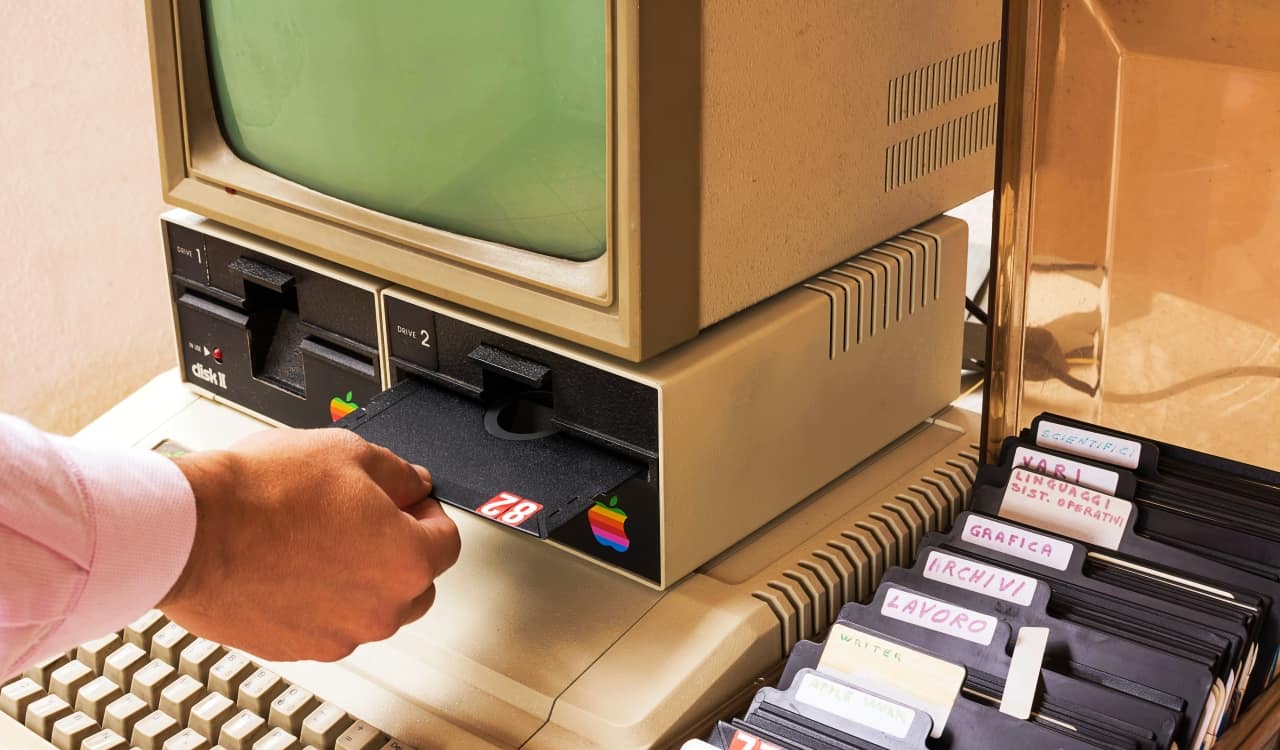
Funny enough, these disks were not exactly floppy at all. However, they could appear that way if you shook them. What caused them to go extinct and join obsolete tech products on this list? Better technology. Compact Discs were more capable of handling the needs of the time. They stored more memory and offered a faster, more effective product. Video Games began to even use them to put massive files on too. Ultimately, the CD killed Floppy Disks.

Incandescent Light Bulbs
- Period of Use: Late 1800s to 2000s
- Made Obsolete By: Fluorescent Light Bulbs, LEDs
Thomas Edison is the man responsible for the Incandescent Light Bulb. They were incredibly useful and gave us our initial rise in electricity. These bulbs were truly THE bulb to use for many years. We’d later find that they were not exactly the best thing for our homes or the environment. That led to the idea that we should try to improve upon them, which happened with fluorescent lamps, cold cathode lamps, and even LEDs.

Incandescent light bulbs can technically still be found, but most places have no need to sell them any longer. The newer bulbs work better and longer, even offering more light. On top of this, some countries ordered a mandatory phase-out of incandescent light bulbs. Now, these bulbs are essentially obsolete tech products we have no need for. When there’s something better and comes at a similar or lower cost, how could we not blame places for getting rid of the incandescent model?

Typewriter
- Period of Use: 1870s to 1990s
- Made Obsolete By: Personal Computers/Laptops
The Typewriter was initially looked at as one of the best inventions in history. This was a great way for people to avoid having to be great hand writers, and effectively put together documents that looked great. It could also be copied far better than normal hand-written documents. Moreover, they looked more professional too. Your average writer or media member likely wrote on a typewriter every single day.

What ended up killing the typewriter, thus putting it among the obsolete tech products on this list? We’ll give you one guess… computers, it was computers. You took too long. Of course, we’re mostly referencing personal computers that could be used at home or in office buildings. Typewriters simply could not compete. For years, they were great investments for people to make and entire businesses were based around them. Yet they dropped out.

